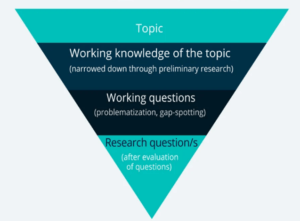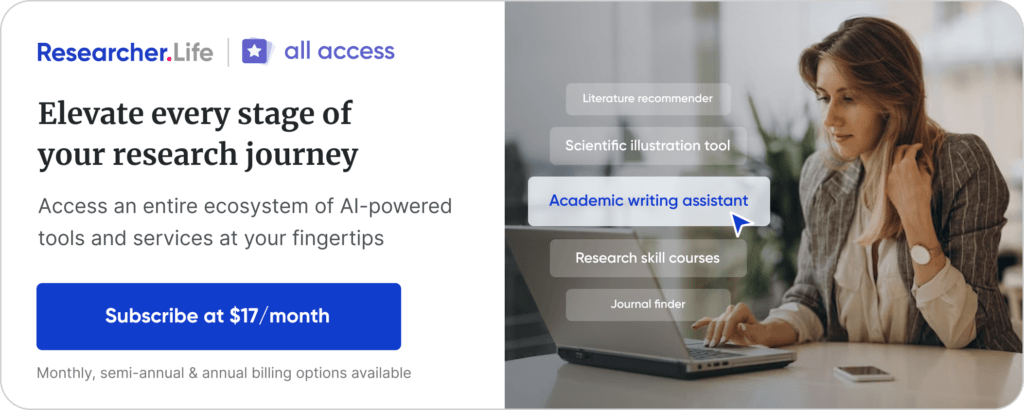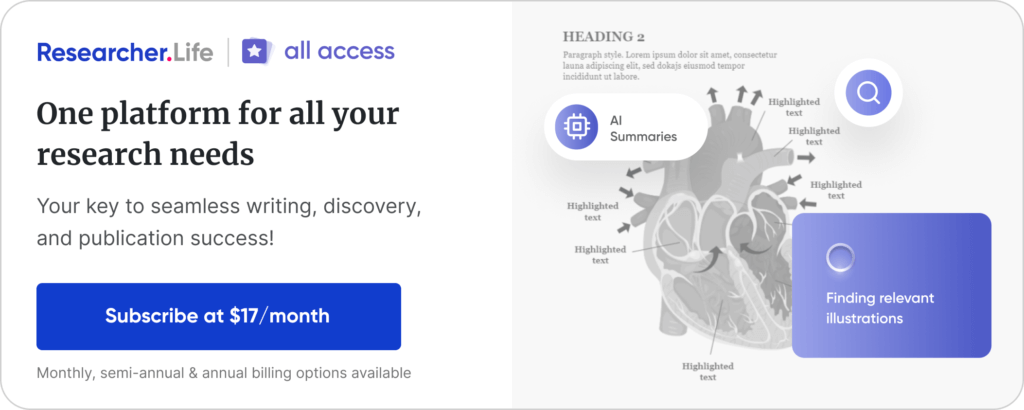
The research process has multiple steps, including critical must-dos before conducting research. Image by jannoon028 on Freepik
What is research process and why is it necessary for researchers to follow the process of research?
Research can be defined as a process of inquiry that researchers undertake to solve a question on a particular subject.1 This process involves a series of steps that should be followed to answer the question, present the findings to the research community, and convince them about the originality and significance of your research. Conducting research is a time- and effort-intensive process and requires meticulous planning to ensure that important aspects are not missed inadvertently, and that adequate time is spent on each step to avoid unnecessary delays. As a researcher, what is your starting point in conducting your research? Every researcher has a different answer to this, but the research process usually has few common steps. So while starting out, having a clear idea about the overall process can help you structure your research better.
Five things to consider before conducting a research study
Although the research process has multiple steps, listed below are 5 essential things to consider before conducting research:1
1. Choose the right research topic and ask the right research question
Early career researchers may sometimes find this first step to be the most difficult one. You need to make sure that the topic you choose is of interest to you and your target audience. A good starting point would be to shortlist a few feasible ideas of interest, considering the amount of time you may have to complete your project. Once you have your list, research on these broad topics to gauge their research potential. Searching online databases and sources such as Google Scholar or the R Discovery app by Researcher.Life could give you an idea of the existing research on the topic.
Once you’ve zeroed in on a broad topic, read as much as possible on that subject through a brief literature review to identify any unanswered questions or unexplored niche areas that pique your curiosity and which you’re confident would interest your target audience. Once you’ve finalized this niche topic, ask yourself questions about it, read more, and note down all possible questions. Sometimes, important questions may occur to you when you’re working on something else, so keeping an open mind while delving into your interests would be helpful. Evaluate all questions and check if they have been asked before, and even if they have, see if you may have a better answer or approach to solving it. Make sure the question you finalize is something you want to answer because this alone will give you the drive to plunge into the next steps.
2. Understand the research problem and propose a working hypothesis

The research question you asked in the first step now becomes the research problem that you’re planning to solve. Before deep diving into your project, you could try creating some possible answers for your question. These answers don’t have to be correct but should aim to steer your research into different directions and help you explore different routes. If any of your speculative answers seem worth pursuing, this could be your working hypothesis and could help guide your research. This hypothesis could be a potential foundation to start building your research methodology. If you’re not able to figure out a hypothesis, try to change your question or topic. This would be the best stage to make this change without losing any time. Such working hypotheses are not concrete and may need to be changed based on your data and findings as you proceed further.
3. Build a storyboard and determine your research methodology

Before delving further into research, you need an outline or a sketch of your proposed plan to guide your research. This planning stage is necessary so that you stick to your schedule and don’t spend more than the estimated time at each step.
A storyboard is a graphic representation of how your project or article will progress, section by section. Your storyboard could be brief or detailed depending on the length of the paper or project. Sometimes, a simple outline can be restrictive and may not allow modifications in the plan.
A storyboard, however, is different because it is an outline spread over several pages and has enough space for you to add data as you go along. It is more flexible than a simple outline because it helps you reorganize your ideas to try out different methods by letting you see your project as one big picture with supporting notes for each stage, which could be changed when required. This process could also help in identifying obstacles or inconsistencies even before reaching a particular stage.
4. Consider collaborations for adding value to your research project
Another thing to consider before conducting research is joining various groups; this allows you to interact with researchers, authors, or academicians in similar fields to explore new opportunities. Some ways to do this is to:
- join or organize a writing group
- consult the faculty at your university
- join associations working toward promoting research in your field
- attend networking events
5. Miscellaneous preparatory tasks
There are few other things to consider before conducting research that should be completed in the planning stage, as listed below:
- Checking for and obtaining relevant permissions and approvals required prior to commencing research. This is especially important if the research involves the use of animals and humans as in clinical trials.
- If required, you may also need to look for funding agencies who could be interested in supporting your research. However, this may not apply to all researchers.
- Identify data storage options for safety and easy retrievability. Safe storage of data is important so that you don’t lose any of your work in case of technical or other issues. Most common storage options include your own desktops/laptops, external hard drives, institutional networks, and cloud storage (use with discretion for storing sensitive data). Always save a copy of your data at a location other than your main computer, in case of any contingencies. In addition, back up your data at regular intervals to avoid any version control issues.4
We hope these key things to consider before conducting research and preparatory tasks mentioned in this article will help you in planning your research efficiently to ensure optimum usage of your time and effort to complete your research project. Remember, there should be enough data before conducting research so that you can take the decisions appropriately.
References
- Turabian, Kate L. A Manual for Writers of Research Papers, Theses, and Dissertations. 9th Chicago: The University of Chicago Press, 2018.
- Bouchrika, I. How to write a research question: Types, steps, and examples. Research.com website. Accessed September 18, 2022. https://research.com/research/how-to-write-a-research-question
- Glantz, E. A Cognitive Systems Engineering Approach to Support Municipal Police Cognition – Scientific Figure on ResearchGate. Accessed September 19, 2022. https://www.researchgate.net/figure/Dissertation-Storyboard_fig21_300350594
- Washington State University website. Research data management. Accessed September 19, 2022. https://libguides.libraries.wsu.edu/rdmlibguide/datastorage
Researcher.Life is a subscription-based platform that unifies the best AI tools and services designed to speed up, simplify, and streamline every step of a researcher’s journey. The Researcher.Life All Access Pack is a one-of-a-kind subscription that unlocks full access to an AI writing assistant, literature recommender, journal finder, scientific illustration tool, and exclusive discounts on professional publication services from Editage.
Based on 21+ years of experience in academia, Researcher.Life All Access empowers researchers to put their best research forward and move closer to success. Explore our top AI Tools pack, AI Tools + Publication Services pack, or Build Your Own Plan. Find everything a researcher needs to succeed, all in one place – Get All Access now starting at just $17 a month!



